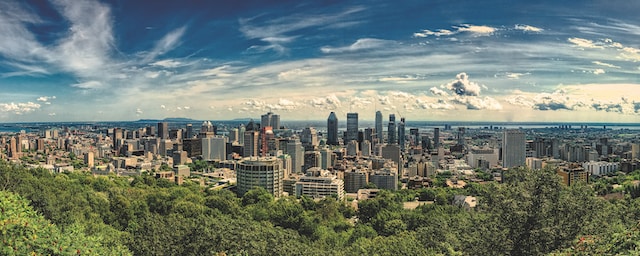Sanctions to the builders? Useless. Not a single social housing in Montreal in two years
MONTREAL – The housing crisis seems to have no solution. Not even the most drastic of initiatives, such as the one undertaken by the Mayor of Montreal, Valérie Plante, has yielded results.
Two years ago, the Mairesse-led administration passed a new housing law that was to lead to the construction of 600 new social housing units a year, forcing developers to include social, family and, in some places, affordable housing units in all new projects larger than 4,843 square feet. Pena, a fine. Or the delivery – to the City – of land to build social housing. Well, the builders preferred to pay the fines or hand over the land. And the City of Montreal hasn’t seen a single new “affordable” home.
According to data released by Ensemble Montréal, the City’s official opposition, and published by the CBC, since the entry into force of the regulation (in April 2021) there have been 150 new projects by private developers, for a total of 7,100 housing units, but none of them has been transformed into affordable housing: almost all the builders have opted instead for financial compensation to the City of Montreal and five of them have chosen the alternative provided for by that law, i.e. the sale of a piece of property to the City.
Adding insult to injury: the money paid by private developers, which has gone into the City’s affordable housing fund, totals a total of $24.5 million so far, not enough to develop even a single project of social housing, according to housing experts.
“These numbers are catastrophic,” said Julien Hénault-Ratelle, Mercier-Hochelaga-Maisonneuve city councilor with Ensemble Montréal. “Montreal’s housing affordability crisis is getting worse by the month. We’re seeing families all over Montreal who can’t afford housing.”
Now, Ensemble Montréal is asking the Plante administration to reveal what it intends to do with the five new plots obtained and the $24.5 million collected.
The City, for its part, defends itself by emphasizing that the new regulation is not the only tool available to make housing more convenient: land and buildings have been acquired for housing initiatives, simplifying the approval of real estate projects and collaborating with other partners, explains the City.
However, there are those who argue that the law was not formulated in the right way. “A stricter rule was needed from the outset to force developers to give up properties or include social housing,” said Véronique Laflamme, spokeswoman for the housing defense organization “Front d’action populaire en réaménagement urbain (FRAPRU) “. “If there is the option of financial compensation, it is obvious that private developers will go for that.”
Meanwhile, the situation in Montreal is increasingly dire: there are still about 24,000 families on a waiting list for social housing and more than 100 tenants were homeless as of July 1, Laflamme told the CBC, adding that although the City cannot to solve the problem on its own – it needs the support of the highest levels of government and the private sector – rules such as a different, stronger and more rigid Metropolis statute are needed. “We can’t count on the goodwill of private developers, but neither can we give them the keys to the city,” said Laflamme. “It brings us to the question, who does the city belong to? Developers or the people who live in it?”.
Pic by Matthias Mullie from Unsplash




